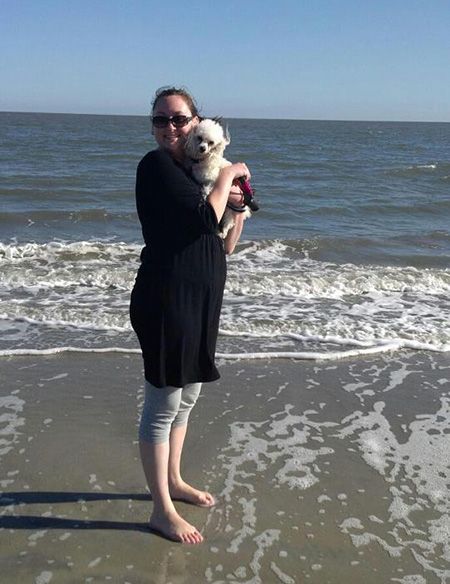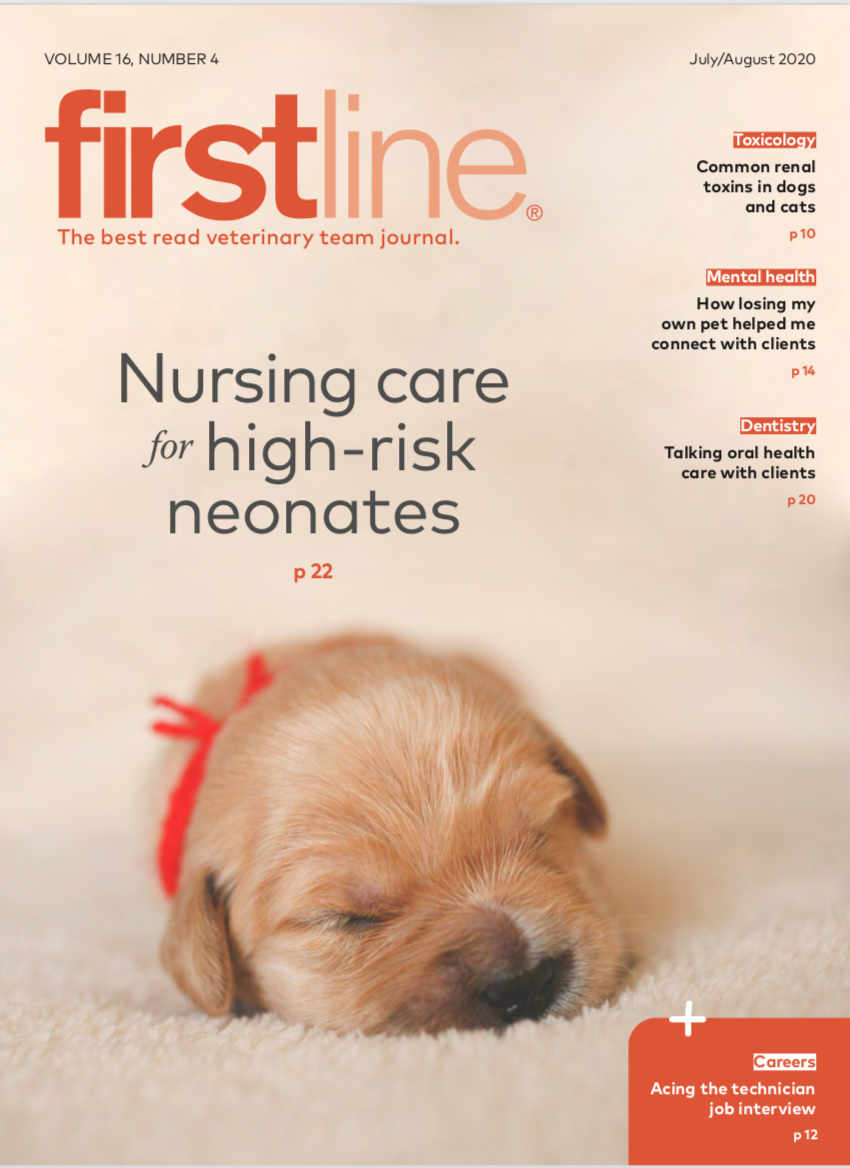How losing a pet helped me connect with veterinary clients
My work in a specialty practice where loss was commonplace didnt resonate with me until much later. After losing my own pet, I understand clients pain more acutely.
Parris and her dog, Lylah

For several years I worked at a veterinary specialist facility. Internists, oncologists, dermatologists, neurologists and more would see cases when a patient's regular veterinarian couldn't perform further diagnostics or surgeries. During my time there, I witnessed a range of emotions displayed by clients-sadness, grief, anger and, in some cases, happiness. But being that this hospital was a last resort for pets with problems, I saw more sadness than anything else. On a daily basis, I saw clients crying in the lobby, spoke with upset clients on the phone and gave out a lot of hugs and tissue boxes. Unfortunately, death was a common occurrence and I dealt with it every day.
I was always taught to be strong for clients in these situations. They look to you for kind words and sincere actions, even as slight as a hand on a shoulder. Most pet owners were faced with making the difficult decision to euthanize when their doctor ran out of options and their pet lost his or her fight. A small portion of clients never got the chance to say goodbye as their pet passed away during a procedure. No matter what the cause of death, it was heartbreaking every time. Every day, I watched pets and their owners go through both dilemmas and frequently found myself watching the pet owners' reactions. Tears would run down their faces, tissues would be strewn all over the floor and the worst part was seeing the men cry. Nothing is worse than seeing a man cry over the loss of his best friend.
Over my time there I noticed something about myself and thought, "What is wrong with me?" I never cried. I never had tears in my eyes or a lump in my throat or even felt like I needed to cry. I repeatedly told myself that I had to be strong for the owners because if they saw me crying, it could make them more upset. I remember talking to my mother one day after work and telling her how I thought this job was making me coldhearted because I never cried. It was like I was missing the compassion switch in my head. Little did I know, I had the switch, it just hadn't been turned on.
Shortly after leaving that specialty hospital, I started working at the clinic where I lost my lovely dog Lylah, and my switch was flipped. Every euthanasia appointment that I experienced after that made me break down in tears. Any emergency where the pet couldn't be resuscitated made me feel like I could have done more to help. Losing Lylah had opened my eyes to a whole new world of pet ownership-and it wasn't a world I wanted to know. After losing her and experiencing such an emotional roller coaster, I took a few months off from being a veterinary technician. I needed time to regain composure and focus.
My first job back in a vet clinic was nine months after Lylah's death. I had finally decided to get back in to the groove because my grandfather motivated me while he was losing his own battle. Hesitant and scared to go back to work, I took a leap of faith and knew this is what I was meant to do. During my first euthanasia appointment back, I cried. I couldn't hold it in, as much as I tried. However, it felt different. The pet owner and I had something we both could relate to. We chatted, while crying with each other, about our dogs and our unforgettable experiences we had them. I had found a way of connecting with clients on a personal level and losing Lylah had helped me get there. I had never known what it felt like to lose a pet, so I never had the emotions related to it, until I lost my own. I now understood how all the clients that I had interacted with in the past had felt during such a painful moment. After a while of crying so much about it, I learned to be strong again. This time, it wasn't just for the pet owner, but for me as well.
I just had my first emotional breakdown in three years because of a pet's death at the clinic-a 14-year-old Chihuahua with a liver mass the size of my fist underwent surgery at our clinic in hopes that the cancer hadn't spread. But the doctor opened her up and removed the liver with the mass, only to find that the cancer had not only spread, it was also not possible to remove all of it and have the pet survive. A call was made to the pet owner and the decision was made to euthanize on the surgery table. As the doctor was administering the euthanasia solution, memories of Lylah flashed in front of my eyes as I watched the Chihuahua's tongue color go from pale pink to blue. Her life had ended, and I had witnessed the entire event. I just stood there, watching her pass into oblivion, like I had with Lylah.
The first thought that ran through my mind was, “Am I even in the right career?” I texted my mom and told her that I love what I do, but it's cases like this that make me think of Lylah and wonder if I'm in the wrong profession. My mom bluntly but so perfectly replied, “Nope ... you just have compassion. This is what Lylah would want you to do.” Of course, that just made me cry harder but after I calmed myself down, I took to heart what my mom told me.
I won't be able to save every animal, it's inevitable, but I can damn sure try my best.
Leah Parris, RVT, CCFP, HABc
